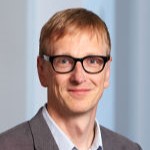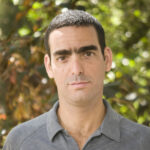Special Models of Computation
To complement the 30th Anniversary of SIROCCO, there will be a tutorial session on Special Models of Computation on June 6th. In this session, SIROCCO researchers will share the histories and open problems for distributed computing models that bridge computer science theory to other interdisciplinary aims.
Invited Speakers
| Roger Wattenhofer — Swarm Intelligence: Does it exist, and how can we find it? [slides] Roger Wattenhofer is a full professor at the Information Technology and Electrical Engineering Department, ETH Zurich, Switzerland. He received his doctorate in Computer Science from ETH Zurich. He also worked multiple years at Microsoft Research in Redmond, Washington, at Brown University in Providence, Rhode Island, and at Macquarie University in Sydney, Australia. Roger Wattenhofer’s research interests include a variety of algorithmic and systems aspects in computer science and information technology, e.g., distributed systems, positioning systems, wireless networks, mobile systems, social networks, financial networks, deep neural networks. He publishes in different communities: distributed computing (e.g., PODC, SPAA, DISC), networking and systems (e.g., SIGCOMM, SenSys, IPSN, OSDI, MobiCom), algorithmic theory (e.g., STOC, FOCS, SODA, ICALP), and more recently also machine learning (e.g., ICML, NeurIPS, ICLR, ACL, AAAI). His work received multiple awards, e.g. the Prize for Innovation in Distributed Computing for his work in Distributed Approximation. He published the book “Blockchain Science: Distributed Ledger Technology“, which has been translated to Chinese, Korean and Vietnamese. |
 |
| Yuval Emek — A Decade of Stone Age Distributed Computing [slides]
Yuval Emek is an Associate Professor at the Faculty of Industrial Engineering and Management in the Technion – Israel Institute of Technology, where he conducts his research on algorithmic aspects of coping with uncertainty. He received his PhD (2008) from the Weizmann Institute of Science in computer science and applied mathematics under the advise of David Peleg. Following that, he held post-doc positions at Tel Aviv University (2008-2009, Boaz Patt-Shamir’s group), Microsoft (2009-2010, Moshe Tennenholtz’s group), and ETH Zurich (2010-2013, Roger Wattenhofer’s group), before joining the Technion as a faculty member in 2013. Between 2021-2022, Yuval was a visiting Associate Professor at the Department of Computer Science in the University of British Columbia. |
 |
| Frederik Mallmann-Trenn — Learning Hierarchically-Structured Concepts in Spiking Neural Networks [slides]
Frederik Mallmann-Trenn received his PhD from École normale supérieure in 2017. He worked at MIT from 2017 to 2019 as a postdoc with Nancy Lynch. Since 2019 he is a faculty member at the Informatics department at King’s College London, where he teaches Artificial Intelligence. His research focuses on the analysis of stochastic processes and community detection. He is particularly interested in computations with noise. |
 |
| Joshua Daymude — (Almost) Ten Years of the Amoebot Model of Programmable Matter [slides]
Joshua Daymude received his PhD from Arizona State University in 2021 and is now an Assistant Professor in ASU’s School of Computing and Augmented Intelligence (SCAI) and Biodesign Center for Biocomputing, Security and Society (CBSS). He researches algorithmic theory for the efficient coordination and characterization of collective emergent behavior in biological, social, and engineered complex systems, and is particularly interested in interdisciplinary research on dynamic networks, programmble matter, microbiomic ecology, and theoretical immunology. |
 |
Organizers
- Joshua Daymude, Arizona State University, USA
- Andréa Richa, Arizona State University, USA
- Christian Scheideler, University of Paderborn, Germany
